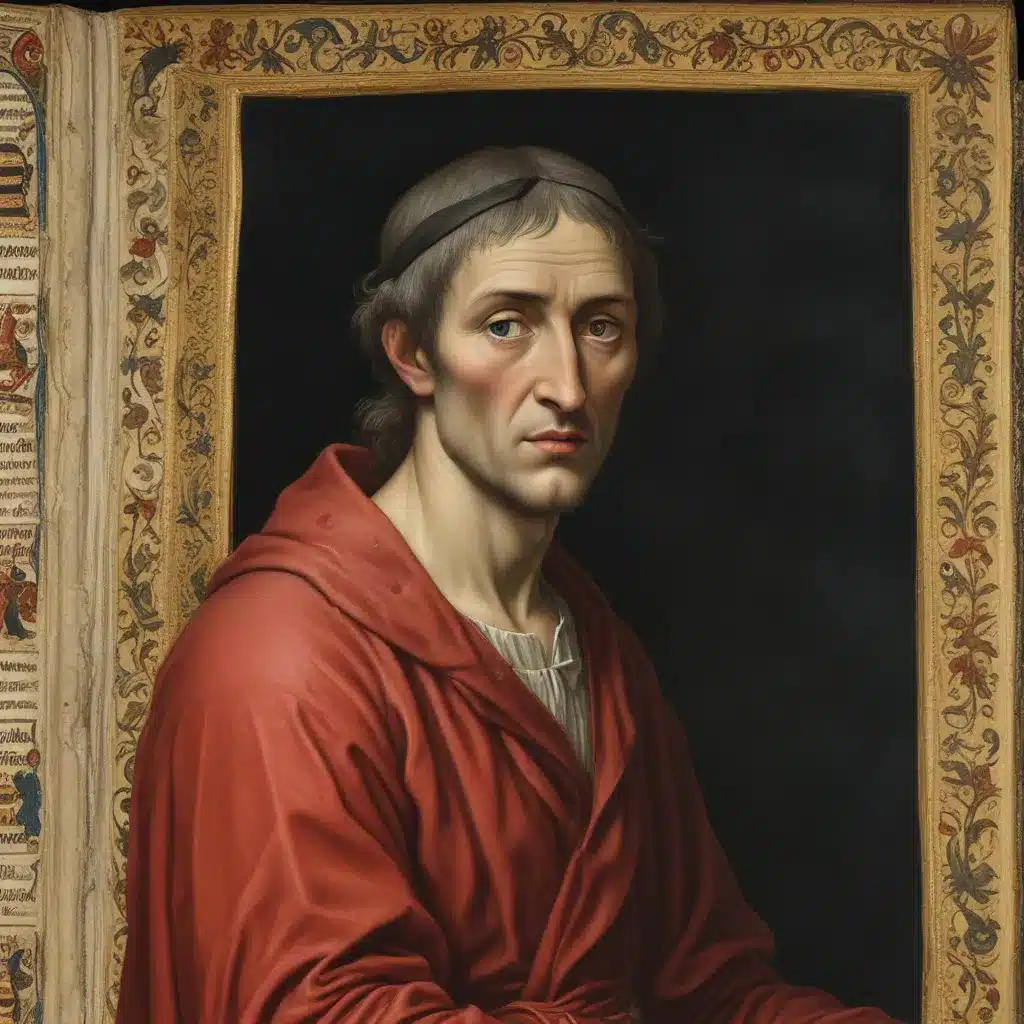
In a remarkable turn of events, two authentic pages from the first printed edition of Dante Alighieri’s seminal work, the Divine Comedy, have been unearthed in the city of La Spezia, Italy. This extraordinary discovery not only sheds new light on the preservation of early printed masterpieces but also reaffirms the profound cultural and historical significance of Dante’s enduring legacy within the region.
Uncovering a Priceless Treasure
The pages, featuring passages from the Purgatorio and Paradiso canticles, were discovered during the relocation of the State Archive in La Spezia. Mayor Pierluigi Peracchini, in an interview with the local newspaper Il Secolo XIX, announced the momentous find, describing it as “an extraordinary event—a discovery of immeasurable value.”
These pages are believed to belong to the groundbreaking 14th-century edition, often referred to as the “Pax Dantis,” a term that symbolizes the cultural and political peace fostered by Dante’s influential writings in medieval Italy. “We will work closely with the Ministry of Culture to create a public exhibition showcasing these treasures,” Peracchini remarked, underscoring the city’s commitment to preserving and sharing this remarkable piece of literary history.
Dante’s Enduring Legacy
The Divine Comedy, Dante’s epic narrative poem completed in 1320, is widely regarded as one of the greatest works of literature ever produced. This masterpiece tells the story of Dante’s allegorical journey through the three realms of the afterlife: Hell (Inferno), Purgatory (Purgatorio), and Paradise (Paradiso), guided first by the Roman poet Virgil and later by his beloved Beatrice.
Celebrated for its vivid imagery, innovative use of the Italian vernacular, and profound exploration of philosophical and theological concepts, the Divine Comedy has captivated readers and scholars for centuries. The work’s profound impact on Western literature and culture is undeniable, cementing Dante’s status as the “Father of the Italian language” and a towering figure in the literary canon.
The Significance of the Pax Dantis
The discovery of these rare pages in La Spezia is particularly significant due to their connection to the Pax Dantis, a 14th-century accord that resolved a bitter feud between the Malaspina family and the Bishops of Luni. This historical event is believed to have had a profound influence on Dante’s writings and his overall perspective on the political and cultural landscape of medieval Italy.
During his years in exile from Florence, Dante’s interactions with influential figures like the Malaspina family left an indelible mark on his work. The newly discovered documents related to the Pax Dantis further solidify the city’s direct connection to the poet’s life and legacy, underscoring the far-reaching impact of his literary genius.
The First Printed Edition of the Divine Comedy
The Divine Comedy, completed by Dante in 1320, became one of the earliest works to be printed with movable type, with its first edition produced in Foligno, Italy, in 1472. This groundbreaking edition played a pivotal role in the diffusion of Dante’s masterpiece during the Renaissance, making it accessible to a wider audience and cementing its status as a cornerstone of Italian and global literature.
The discovery of the pages in La Spezia not only sheds new light on the preservation of these early printed works but also reaffirms the enduring influence of Dante’s writings on Italian culture. The forthcoming public exhibition promises to attract both scholars and enthusiasts, eager to witness this rare piece of literary history and gain deeper insights into the poet’s life and times.
Rediscovering Giorgione’s Artistic Legacy
The discovery of the rare Dante manuscripts in La Spezia is not the only recent unearthing of a significant cultural treasure related to the Divine Comedy. In 2019, a librarian at the University of Sydney, Kim Wilson, made a remarkable find while examining a 1497 copy of Dante’s masterpiece in the university’s rare book collection.
Wilson discovered a red chalk drawing of the Madonna and Child on the back page of the book, attributed to the renowned Italian Renaissance painter, Giorgione. This drawing is one of only three works confidently ascribed to the artist, the others residing in Rotterdam and New York. The discovery of Giorgione’s sketch, along with a 16th-century Venetian inscription providing the date and details of the artist’s death, has been hailed as a transformative event in the understanding of Venetian art history.
“Giorgione is as important an artist as Leonardo da Vinci, but only a fraction of works are known to be in his hand,” said Emeritus Professor Jaynie Anderson from the University of Melbourne. “This discovery will have a transformative effect on the way Venetian art history is written.”
The connection between Dante’s Divine Comedy and Giorgione’s artistic legacy further underscores the profound cultural resonance of the poet’s work, as it continued to inspire and influence generations of Italian artists and intellectuals.
Celebrating Dante’s Timeless Influence
Italy commemorates Dante Alighieri annually on March 25, designated as “Dante Day” (“Dantedi”), marking the date scholars attribute to the start of the Divine Comedy’s fictional journey. This year-long celebration of the poet’s enduring impact is amplified by discoveries such as the one in La Spezia, which provide fresh insights into his life and era.
The potential public exhibition of the newly discovered Dante manuscripts in La Spezia promises to draw scholars, historians, and admirers from around the globe, reaffirming the timeless resonance of the poet’s work and its profound influence on Italian culture and beyond. As Mayor Peracchini eloquently stated, “These findings are a testament to La Spezia’s cultural heritage and its connection to Dante’s life and work.”
In an age where the pursuit of truth and the preservation of cultural heritage are more important than ever, the rediscovery of these rare Dante manuscripts serves as a poignant reminder of the enduring power of literature to transcend time and space, connecting us to our shared past and inspiring us to contemplate the profound mysteries of the human experience.

